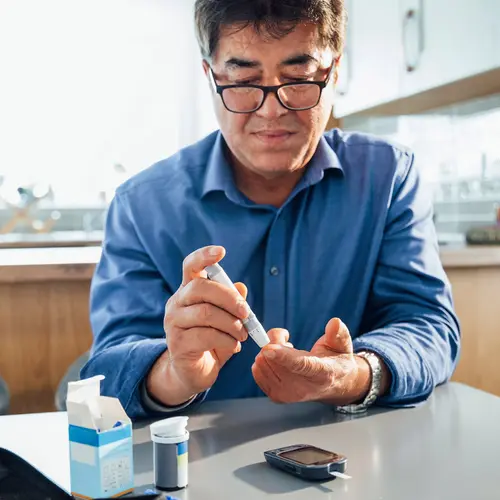Tachycardia is a condition that makes your heart beat more than 100 times per minute. There are three types of it:
- Supraventricular. This happens when the electrical signals in the organ's upper chambers misfire and cause the heart rate to speed up. It beats so fast that it can’t fill with blood before it contracts. That reduces blood flow to the rest of your body.
- Ventricular. This is a rapid heart rate that starts in your heart's lower chambers. It happens when the electrical signals in these chambers fire the wrong way. Again, the heart beats so fast that it can’t fill with blood or pump it through the rest of your body.
- Sinus tachycardia. This happens when your heart’s natural pacemaker sends out electrical signals faster than normal. Your ticker beats fast, but it beats the way it should.
What Causes It?
Any number of things.
Strenuous exercise, a fever, fear, stress, anxiety, certain medications, and street drugs can lead to sinus tachycardia. It can also be triggered by anemia, an overactive thyroid, or damage from a heart attack or heart failure.
Supraventricular tachycardia is most likely to affect people who smoke, drink too much alcohol, or have a lot of caffeine. In some cases it’s linked to heart attacks. It’s more common in women and children.
The ventricular type is associated with abnormal electrical pathways which are present at birth (long QT), structural problems of the heart such as a cardiomyopathy or coronary disease, medications, or electrolyte imbalance. Sometimes, the reason is unclear.
Symptoms
No matter which type of tachycardia you have, you may feel:
- Dizziness
- Lightheadedness
- Shortness of breath
- Chest pain
- Heart palpitations
In extreme cases, you could become unconscious or go into cardiac arrest.
But sometimes, a super-fast heart rate causes no symptoms at all.
Tests
These may include:
- Electrocardiogram (ECG or EKG). This records the electrical activity in your heart and helps your doctor search for things that don’t look normal. You may have to wear a holter monitor, a portable machine that records your ECG signals over 24 hours.
- Exercise stress test. Your doctor will have you walk on a treadmill while they monitor your heart activity.
- Magnetic source imaging: This measures the heart muscle’s magnetic fields and looks for weaknesses.
Treatment
Your doctor will decide what’s best after they get your test results.
If you have sinus tachycardia, they’ll help you pinpoint the cause and suggest things to lower your heart rate. These might include lifestyle changes like easing stress or taking medicine to lower a fever.
If you have supraventricular tachycardia, your doctor may recommend that you drink less caffeine or alcohol, get more sleep, or quit smoking.
Treatments for ventricular tachycardia may include medication to reset the heart’s electrical signals or ablation, a procedure that destroys the abnormal heart tissue that is leading to the condition. Your doctor might also use a defibrillator to disrupt rapid heart rhythms.
A rapid heart rate doesn’t always need treatment. But sometimes it can be life-threatening. So play it safe -- let your doctor know right away if you have any type of irregular heartbeat.

